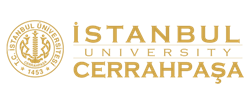Objective: To make a due diligence on the work–life balance of healthcare professionals and to provide an up-to-date measurement tool for work–life balance in Turkish as a result of a methodological study.
Methods: The research was carried out on 431 healthcare workers in 9 public hospitals and 4 foundation/private hospitals in Istanbul. The New Work–Life Balance Scale consists of 15 items and 3 sub-dimensions. One sworn translator and 5 academicians were used for language validity. Item Analysis, Explanatory Factor Analysis, Confirmatory Factor Analysis, Intergroup Differences Validity, Convergent Validity, and Divergent Validity are used in the construct validity phase. Cronbach Alpha and test–retest were used for reliability analysis.
Results: As a result of the research, the validity and reliability study of the New Work–Life Balance Scale was completed and it was brought to the Turkish literature. Due to the structure of this scale, which is applied to healthcare workers, it has a design that can be used in other areas as well.
Conclusion: In the study, it was determined that physicians and nurses had lower Personal Life scores than health technicians. Dietitians have higher Personal Life scores than physicians. Those who work more than 9 hours have a lower work–life balance score than those who work under 9 hours. While there was a moderately positive relationship between work–life balance and happiness at work, a moderately negative relationship was found with burnout.
Cite this article as: Yılmaz S, Söyük S. Determination of work–life balance in healthcare professionals: Validity and reliability of the new work–life balance scale. Arch Health Sci Res. 2022;9(2):130-137.


.jpg)


